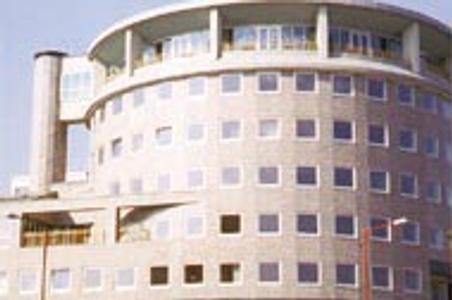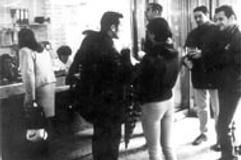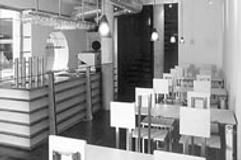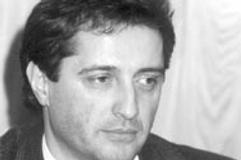Archive of articles - October 1998, page 4
If you desire to read an old article, use the search bar or select the publication date.
State insurer rejects takeover
The drawn-out saga of the controversial basic capital increase at the largest insurance company, Slovenská Poisťovňa, took another surprising twist on October 15, when major shareholders voted to cancel the equity hike altogether. This means that the company remains majority-owned by the state, through a stake formally held by the National Property Fund privatisation agency.The move to cancel the increase was the result of a bitter row over the equity hike between the National Property Fund (FNM) and a group of companies linked by opposition politicians and analysts to the largest private shareholder, steel maker VSŽ.FNM representatives blocked registration of the capital increase, originally proposed by VSŽ, at the previous extraordinary shareholders meeting held on September 4.
Slovak CPI seen up substantially on float
The decline of the Slovak currency following its floatation earlier this month will add several percentage points to inflation by the year's end, analysts said.The central bank has said it expects the depreciation to raise prices by 1.5 to 4.0%, but it has not given any specific update on its previous inflation target of 5.6 to 5.9% for December year-on-year."They are obviously not going to meet that target," said Miloš Bozek, an analyst at J&T Securities. "Our calculation is that year-on-year (December) inflation will be 10.3%, and average inflation 7.6%," he said. Bozek's predictions, based on the exchange rate of the crown's being some 14% below the central parity of its former mark/dollar basket, were at the upper end of the range of expectations for year-end inflation.
Central bank lets crown fall
The National Bank of Slovakia (NBS) shocked financial markets on October 1 by abolishing the fluctuation band of the Slovak crown and cancelling its fixed regime, which had been pegged to a mark/dollar currency basket.While capital markets have long been saying that the crown was overvalued and predicting that the central bank would widen the fluctuation band to let the currency weaken, the complete abolition of the fixed regime came as a big surprise.At a hastily called briefing, central bank Governor Vladimír Masár cited the devaluation expectations of citizens and the corporate sector, downgradings of Slovakia' credit ratings and problems in refinancing the state budget deficit as the main reasons behind the decision to float the currency.
Analysts say Premier will return to politics
With tears in his eyes, Premier Vladimír Mečiar bade farewell to a national television audience on September 30. In a bizarre address to citizens, Mečiar told the country that the election defeat of his ruling HZDS party was "a loss for the Slovak people," and finished by singing viewers a song. "I never hurt any of you," the Premier crooned.Mečiar's final appearance on his regular state television program, 'What's next Mr. Premier?", touched off a furious round of speculation as to whether the emotion he displayed was genuine or contrived, and whether his announced decision not to participate in attempts to form a new government signalled his permanent departure from politics.
Joint Industrial and Commercial Attachments Programme
Slovak senior and middle managers between 25 and 45 years of age are invited to apply for the business education programme "Information technology." The course is open to anyone who has a graduate degree, a high standard of English and relevant managerial experience and responsibility.The programme is designed to assist Slovak companies in their enterprise development and to help them to establish long-term co-operation. It is financed by the British Foreign and Commonwealth Office's Know How Fund, and is run jointly by the British Council and the Confederation of British Industry.
Crown, interest rates and bond yields set new records. Tumultuous week on money market follows NBS moves
The Slovak central bank (NBS) ended months of speculations and floated the crown on Thursday October 1, abolishing its fluctuation band against the mark/dollar basket and leaving the currency's fate to the forces of supply and demand.The central bank since the beginning of August has used a big portion of its foreign exchange reserves to defend the stability of the crown exchange rate, but devaluation expectations created a healthy appetite for hard currencies and the NBS could not allow a further drop in its reserves.
Voices from the past
Watching a new government trying to get its act together can be as depressing as watching an old one cling to power.Ever since the four parties of the former opposition declared on September 27 their solidarity and determination to form Slovakia's next government, mean-spirited wrangling has become the tone of their negotiations.The Party of the Democratic Left (SDĽ), which won a surprising 14.7% of the vote, has been the chief culprit. The party has long had an unsavoury reputation as being willing to sell itself to the highest political bidder, and now that it sees itself in the role of kingmaker, party members (in particular, leader Jozef Migaš and deputies Pavol Kanis, Robert Fico and Ľubomir Fogaš) have been slowing the negotiation process with their ridiculous objections to the inclusion of the Hungarian party in the government.
Slovaks need visa for UK
In order to stem the ceasless tide of Slovak Romanies coming to Britain to claim asylum, the British government announced on October 7 that Slovak citizens will now need visas to enter the islands.Jack Straw, British Home Secretary, said in a statement that the visa requirement, which comes into effect as of October 8, was intended to stop people seeking better living standards from moving from central European countries and abusing the asylum system.In August, 846 Slovak citizens, mostly Romanies (gypsies), applied for asylum in Britain. Another 701 applied in September, even though the vast majority of their predecessors had been turned down.
Slovak voters have opened new door to Europe
The chairman of the European Parliament's Ad Hoc delegation to observe the parliamentary elections in Slovakia has expressed his support for the statements made by the European Commission and the Austrian Presidency concerning the election in Slovakia. He is calling for a debate in one of the forthcoming plenary sessions of the European Parliament, in order to ensure that the EU shows flexibility in dealing with the new Slovak Government.Mr. Jan Marinus Wiersma (PES, Netherlands) stated that the European Parliament would now follow very closely the procedures for the establishment of the new Slovak National Council and the appointment of the next Government of Slovakia.
Kráter - nice food, shame about the atmosphere
Bratislava boasts a wealth of conservative Slovak-style pubs and nightspots, but few real alternatives to the norm. Kráter, a recently-opened mixture of pub, café and disco, is an interesting exception. But although the food is great and served late, Kráter attracts a few too many annoying 'alternative' clients to its 'alternative' schtick.Located the shadow of the Slovenská Sporiteľňa bank on Vysoká Street , Kráter is an airy and trendy hangout only a few steps from the Hviezda and Tatra cinemas and the Nová Scéna theatre. With a kitchen that serves meals until 3 in the morning, Kráter is a convenient place to get a bite after an outing.
Považské factory to fire another 500 workers
Even after this year's painful sacking of 400 people, the northern Slovak machinery factory Považské strojárne (POS) still plans to dismiss another 500, despite warnings from unions and the national employment office. The company claims it must cut its work force if it is to survive, but its workers called a strike alert on September 29."We cannot act as a social institute in a situation where we don't have finances for our basic development," said Igor Gubala, general director of POS. "When I came here a year ago, administration and non-productive spheres made up 40% of employees. Today, it's 33%, and it's still too high."
Gaulieder joins KDH
František Gaulieder has re-entered politics through an unlikely door. The former Slovak Parliamen-tary deputy from Premier Vladimír Mečiar's ruling HZDS became a member of the party's sworn enemy, the Christian Democratic Movement, on October 1."I have entered the KDH just now because I want to accomplish what I could not before, and I want to accomplish it in the company of polite people," Gaulieder said. He explained that the KDH had been the only option for him after his departure from Mečiar's HZDS.Gaulieder had his mandate as a Parliamentary deputy revoked in December1996, after he decided to leave the HZDS. "My parliamentary vote was strategic for the HZDS, whenever they wanted to push something through," said Gaulieder.
SES Tlmače profits surge
While energy price regulation and falling profits have dimmed the lights at Slovenské Elektrárne (SE), the state electricity monopoly's main supplier is reporting healthy results and bright prospects for the years to come.The Slovak Energetics Engineering Works [SES a.s. Tlmače], one of SE's giant suppliers, reported a gross profit of $2.17 million for the first seven months of this year, up from a $2.15 million profit in FY1997 and an $18 million loss in 1995.SES Tlmače is a major engineering company focusing primarily on the production of water boilers for SE, their main client. "We are working on the biggest contract in our history with Slovenské Elektrárne. It is a five billion Sk [$140 million] contract focused on environmental improvements and revitalization of the Vojany power station," said Viliam Petríč, marketing director at SES Tlmače.
Without water, air or electric ower, life is impossible
A conversation with Rastislav Petrech, head of the Foreign Affairs & Public Relations DepartmentOn the morning of Friday, August 28, 1998, the first phase of complete nominal performance began in the first block (440 MW). Today it is fully operational. When do you plan to launch the second block?Work on the second block continues on schedule. The first tests will be held in November. Later, additional tests will follow so that the second block can be 100% operational in October next year. Sticking to the deadlines is not our primary goal, we would like to have this second block really ready for winter operation.
The crown - before and after
The Slovak crown used to be one of the world currencies whose flows were to a large extent liberalised by the central bank, though its movements were not determined by supply and demand forces on the maket.Under the fixed exchange regime, abolished on October 1, the crown was pegged to a currency basket consisting of 60% German marks and 40% dollars. The central bank guaranteed that the crown would only move within a corridor of plus/minus 7.0% around a central parity of this basket.This basket parity used to be calculated every day at exactly half past eleven in the morning, according to mark/dollar movements on world markets. The central bank then had around 10 to 15 minutes to move the crown's fixing rate somewhere around the parity within the fluctuation band.
Union leader slams management
In view of the critical situation in the machinery industry, The Slovak Spectator sat down with Emil Machyna, President of the KOVO Metalworkers' federation , to discuss the background, reasons, and possible solutions to the sectors problems.The Slovak Spectator: How would you describe the current state of the machinery industry in Slovakia?Emil Machyna: The state is critical, and is a consequence of the uncompleted revitalisation of the factories and their new production capacities, as well as our falling competitiveness on foreign markets...The sector has forgotten the fact that rehabilitation of the machinery industry in its current state is not enough. No new projects or new types of management have been introduced. What companies also lack is operating capital. Even companies which have new programmes do not have operating capital, because bank interest rates are about 23%, but the profitability of these companies is only 6%. That means they can hardly go on.
- Ambulance hit by Russian drone goes on display in centre of Bratislava
- Slovakia’s public finances remain in deep trouble
- Confetti, chants and history: Hejková’s dream goodbye after nearly 40 years at the top
- Bratislava’s embassy-backed events you don’t want to miss
- US giant pulls plug on Slovak factory, axing 137 jobs
- “Return not,” the ocean cried. But I returned for her
- The British Film Institute shines a light on Slovak cinema’s boldest chapter Video
- Hundreds of people ousted from Bratislava’s Volkswagen
- “Return not,” the ocean cried. But I returned for her
- Ambulance hit by Russian drone goes on display in centre of Bratislava
- Bratislava’s embassy-backed events you don’t want to miss
- The British Film Institute shines a light on Slovak cinema’s boldest chapter Video
- Slovakia's latest basketball star is destined for great things in the USA
- When to shop over Easter: Opening hours for supermarkets in Slovakia
- 3 free things to do in Bratislava in the next seven days
- US giant pulls plug on Slovak factory, axing 137 jobs
- 3 free things to do in Bratislava in the next seven days
- “Return not,” the ocean cried. But I returned for her
- Hundreds of people ousted from Bratislava’s Volkswagen
- The British Film Institute shines a light on Slovak cinema’s boldest chapter Video
- Weekend: What to make of Easter in Slovakia
- News digest: Finns air unseen video of Fico shooting, PM’s bloody jacket driven away by minister
- US giant pulls plug on Slovak factory, axing 137 jobs
- Slovakia's latest basketball star is destined for great things in the USA
- “Return not,” the ocean cried. But I returned for her
- German shoemaker Lowa joins wave of factory closures in Slovakia
- 3 free things to do in Bratislava in the next seven days
- A café in an ice cellar, sand dunes and a flower shop at the border
- US giant pulls plug on Slovak factory, axing 137 jobs
- Hundreds of people ousted from Bratislava’s Volkswagen
- When to shop over Easter: Opening hours for supermarkets in Slovakia
- Danish shoemaker to shut Slovak factory, axing 650 jobs in fresh blow to struggling region
- Confetti, chants and history: Hejková’s dream goodbye after nearly 40 years at the top
- Slovakia’s public finances remain in deep trouble
- Ambulance hit by Russian drone goes on display in centre of Bratislava
- Why this gorge deserves a spot on your bucket list Photo
- The British Film Institute shines a light on Slovak cinema’s boldest chapter Video
- Bratislava’s embassy-backed events you don’t want to miss
- Water supply to be cut in parts of Bratislava’s Old Town in late April
- Slovakia's latest basketball star is destined for great things in the USA More articles ›






